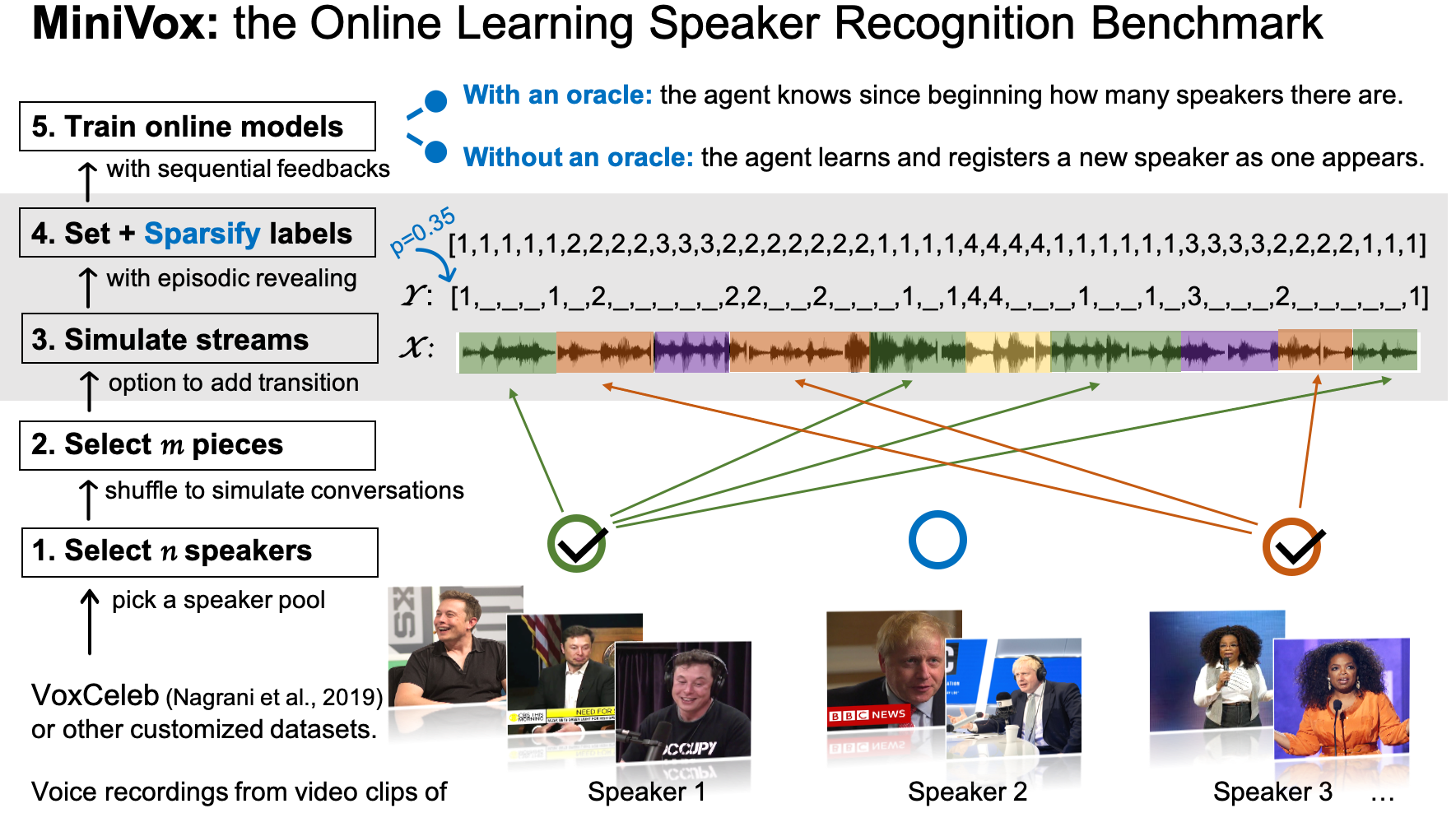Speaker Diarization as a Fully Online Learning Problem in MiniVox
We proposed a novel machine learning framework to conduct real-time multi-speaker diarization and recognition without prior registration and pretraining in a fully online learning setting. Our contributions are two-fold. First, we proposed a new benchmark to evaluate the rarely studied fully online speaker diarization problem. We built upon existing datasets of real world utterances to automatically curate MiniVox, an experimental environment which generates infinite configurations of continuous multi-speaker speech stream. Second, we considered the practical problem of online learning with episodically revealed rewards and introduced a solution based on semi-supervised and self-supervised learning methods. Additionally, we provided a workable web-based recognition system which interactively handles the cold start problem of new user's addition by transferring representations of old arms to new ones with an extendable contextual bandit. We demonstrated that our proposed method obtained robust performance in the online MiniVox framework.
PDF Abstract


 VoxCeleb1
VoxCeleb1